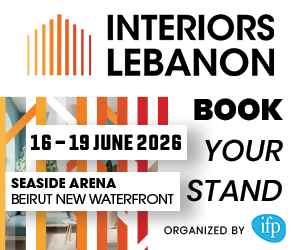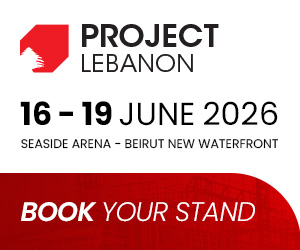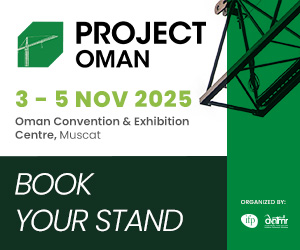Market Overview
The GCC real estate sector represents a dynamic and rapidly evolving landscape, uniting diverse national markets under a shared vision for economic diversification and sustainable development. From the architectural marvels of Dubai to the transformative mega-projects underway in Saudi Arabia, the region is experiencing a real estate boom that reflects long-term national agendas like Saudi Vision 2030 and UAE Vision 2040. These strategies place non-oil sectors—including real estate—at the center of future economic resilience and growth.
Market Size and Growth Outlook
Valued at USD 131.86 billion in 2024, the GCC real estate market is projected to more than double by 2033, reaching USD 252.80 billion, according to the IMARC Group. This growth, at a projected CAGR of 7.1% (2025–2033), reflects deep investor confidence and increasing demand across residential, commercial, and hospitality sectors.
This expansion is not just about increasing real estate inventory—it’s about building integrated ecosystems that support diverse living, business, tourism, and lifestyle needs.
Key Trends Shaping the GCC Real Estate Landscape
Government-Led Economic Diversification:
Strategic investments in tourism, infrastructure, and mega-urban developments—such as NEOM (Saudi Arabia), Lusail City (Qatar), and Dubai South (UAE)—aim to attract global investment and create diversified urban economies.Population Growth and Urbanization:
An expanding population, fueled by natural growth and expatriate migration, is generating strong demand for housing and community-centered developments.Sustainability and Smart Cities:
Green building practices and smart technologies are becoming the standard, aligning with global climate goals and regional environmental strategies. Cities are embracing intelligent systems for energy, mobility, and urban services.Mixed-Use Communities:
Developments integrating residential, commercial, and leisure components in a single location are rising in popularity, driven by demand for convenience and urban livability.Digital Transformation and PropTech:
Property technology (PropTech)—including AI-driven platforms, virtual viewings, automated valuations, and blockchain-enabled transactions—is enhancing transparency, customer experience, and operational efficiency.Luxury and Branded Residences:
The region’s appeal to high-net-worth individuals is driving demand for exclusive, brand-affiliated properties featuring world-class amenities.Affordable Housing Push:
Governments and developers are increasingly focusing on mid-income housing to address affordability concerns and ensure inclusive growth.
Core Growth Drivers
Pro-Investment Policies: Reforms such as relaxed foreign ownership, long-term residency programs (e.g., UAE’s Golden Visa), and favorable tax regimes are fueling foreign investor interest.
Economic Vision Strategies: National programs like Vision 2030 (Saudi Arabia) and Vision 2040 (UAE and Oman) are catalyzing large-scale real estate investments across sectors.
Young and Growing Population: Urban expansion and an influx of professionals are increasing demand for housing, office space, and supporting infrastructure.
Tourism and Mega-Events: With events like Expo 2020 Dubai and the upcoming World Cup in Saudi Arabia, the region is emerging as a global tourism and hospitality hub, boosting real estate demand.
High Disposable Incomes: Strong purchasing power across the region supports demand for luxury homes, retail spaces, and lifestyle offerings.
Infrastructure Development: Continued investment in transportation, utilities, and smart city projects is elevating real estate accessibility and value.
AI’s Transformational Role in Real Estate
AI is increasingly influencing every stage of the real estate value chain:
Market Intelligence & Forecasting: AI-driven analytics enable better forecasting of property trends, yields, and pricing dynamics.
Customer Personalization: Virtual assistants and chatbots enhance user experience through personalized search and support.
Property Valuation: AI-powered AVMs (Automated Valuation Models) offer real-time, data-driven pricing.
Smart Property Management: Predictive maintenance and automated lease management are optimizing operational efficiency.
Targeted Marketing: AI enables hyper-targeted property listings and campaigns based on buyer behavior.
Secure Transactions: Combined with blockchain, AI is streamlining and securing transactions, improving trust and reducing fraud.
Segment Insights
Residential: The dominant segment, driven by demand for both luxury and affordable housing, integrated communities, and rental options.
Commercial: Offices, retail centers, and business parks are seeing growth amid economic diversification.
Hospitality: With tourism surging, investments in hotels, resorts, and serviced apartments are rising across all price tiers.
Industrial & Logistics: E-commerce growth is accelerating demand for warehousing, logistics hubs, and distribution centers.
Retail: While online shopping grows, physical retail is evolving through experiential formats and community-driven centers.
Emerging Opportunities
Mega-Project Investments: Developments like NEOM, Red Sea Project, and Dubai Creek Harbour continue to offer long-term investment potential.
Green Building Technologies: Eco-friendly construction and LEED-certified developments are gaining investor attention.
PropTech Expansion: Startups and platforms delivering innovative solutions for smart homes and digital transactions present new investment routes.
Affordable Housing: Mid-tier and affordable housing developments are a priority segment with rising market demand.
Specialty Real Estate: Healthcare facilities, data centers, education campuses, and industrial zones represent niche but high-growth areas.
Emerging Cities: Cities like Muscat and Doha are gaining traction alongside established hubs like Dubai and Riyadh.
REITs Growth: The expansion of Real Estate Investment Trusts (REITs) in the GCC offers broader investor access to the property market.
Country Spotlights
UAE: Dubai remains a global investment magnet with liberalized ownership laws, Golden Visa incentives, and strong demand for luxury and commercial spaces. Abu Dhabi is investing heavily in sustainability and large-scale mixed-use developments.
Saudi Arabia: Vision 2030 is reshaping the real estate landscape through projects like NEOM, Diriyah Gate, and Qiddiya, driving residential, commercial, and hospitality expansion.
Qatar: Post-World Cup infrastructure and projects like Lusail City underscore the country’s long-term commitment to real estate and tourism-driven development.
Oman: Oman’s Vision 2040 emphasizes real estate and tourism, with integrated tourism complexes (ITCs) offering freehold investment opportunities.
Kuwait & Bahrain: Both markets are experiencing steady, policy-driven growth, with opportunities in commercial, residential, and industrial segments.
Conclusion
The GCC real estate market is entering a new era of growth—one defined by visionary leadership, technological adoption, and strategic diversification. With supportive government policies, a young population, and major infrastructure investments, the region is well-positioned to attract global investors and developers.
While challenges such as global economic volatility and supply chain pressures remain, the region’s strong fundamentals and proactive planning offer a positive long-term outlook. For those seeking opportunities in one of the world’s most ambitious real estate markets, the GCC presents a compelling and future-ready proposition.
Source: IMARC Group











































































